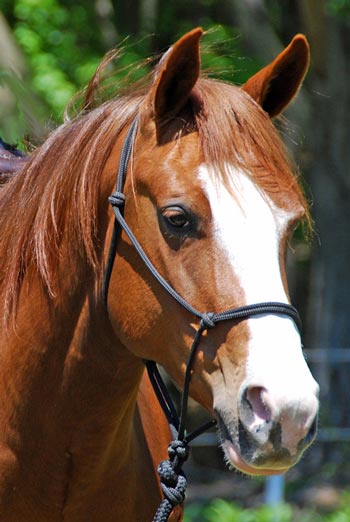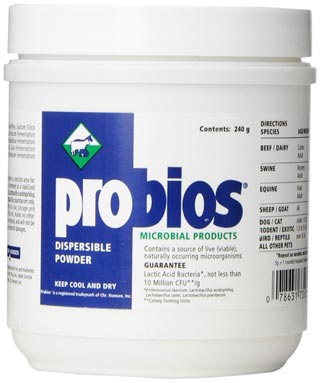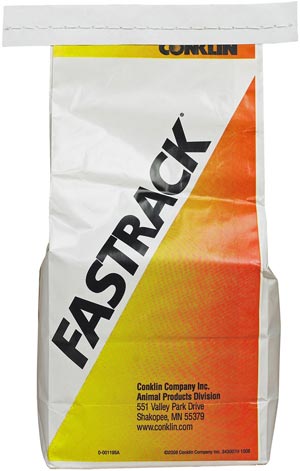Best Probiotics for Horses with Diarrhea: Probios & Fastrack
Why would one consider probiotics for horses? How useful or good are these microbes when consumed by horses? Are probiotics good for horses with diarrhea? Other than Probios and Fastrack, what are the other probiotics for horses? How do you select the best good bacteria for horses? Read on to find out
Horse Probiotics – Health Benefits of Probiotics for Horses & Studies.
How effective or useful are probiotics for horses? What are the health, nutritional benefits of good bacteria for horses? What do studies say?
Though horses are considered very strong animals, they are also very sensitive. Their sensitivity goes beyond how they are handled by their keeper to what they eat, drink and consume to boost their health. There are concerted efforts by both horse owners and their keepers to keep their horses healthy.
An unhealthy horse could spell financial misfortunes for the owner since if they are kept for competitions, they would not be at their best, and neither would the budget for getting regular treatment be a trivial case. As such, ensuring that the foods they ingest are beneficial and if possible health boosting is a major steps towards reducing the chances of issues such as diarrhea.
Diarrhea is not seen mainly as a disease on its own, but as a symptom of something else not right. Defined as an increase in the frequency or the volume of fluid contents that are in stools, it occurs in two main forms. Acute form of diarrhea which is quite serious and chronic form of diarrhea which is when diarrhea lasts for a longer duration, about two weeks. There are a number of causes that may lead to the occurrence of diarrhea in horses. Among them include;
- The effects of bacterial infections in the digestive system
- Inflammatory bowel disease
- Abrupt changes in the animal’s diet
- Intestinal parasites
- Changes in gut bacterial flora
Where there are bacterial infections, the general treatment availed revolves around antibacterial medication. These medicines would lead to the reduction of the bad bacteria that lives in the animals gut.
Once eliminated, the guts bacterial balance would be restored favorably. The more natural method to tackle this challenge is to allow the natural balance of the bacterial microorganisms in the horse’s hindgut to take over. This leads to the use of probiotics in horses and their health. Foods that are rich in probiotics are beneficial to the horses since probiotics serve to restore the bacteria balance in the horses gut. This balance would lead to the reduction or eradication of the harmful bacteria that may have colonized the gut leading to diarrhea.
The good bacterium helps the horse’s body in the ingestion, breakdown and absorption of key nutrients in the body. The absorption phase happens mainly in the intestines following the normal digestive tract. When the good bacteria are less, this does not happen efficiently and is one cause of the diarrhea condition.
Reintroducing the beneficial bacteria into the gut is a critical step in rebalancing the gut flora where it had been disrupted. This can be achieved either by the use of supplements that contain probiotics in the horse diet or by the intake of probiotics rich food contents in the normal diet of the horse.
What do Studies say about Horse Probiotics?
At a 2013 Vetinary Conference, Martin Furr, DVM, PhD, Dipl. ACVIM, a professor and Adelaide C. Riggs Chair in Equine Medicine at Virginia Tech’s Marion duPont Scott Equine Medical Center, explained an initial research assessing the effects of using probiotics for horses- the specific probiotics in the study were based on Pediococcus acidilacticiand Saccharomyces boulardii. [Thehorse.com]
As manufacturers put it, probiotics improve the body’s immune system. Probiotics, as nutritional supplements, also support and protect the gastrointestinal (GI) system not only in horses but other mammals.
According to Martin, how probiotics work is poorly documented but existing studies support the idea that these micro-organism have the aforementioned benefits (immune system and GI ) when consumed properly. How? By;
- Lowering or preventing disease-causing organisms from adhering to cells lining the intestines via specific secreted factors or competitive colonization
- Secreting microbial compounds and products that degrade bacterial toxins
- Stimulating immune responses through interaction with immune cells in the GI tract
- Improving gastrointestinal barrier function.
Probios for Horses-Treats, Dosage, Forms,Ingredients & Reviews
What is probios? What is it made up of or what are the ingredients? How effective is it? Is probios good for horses with diarrhea and ulcers? What is the dosage and in what form(s) is available? Continue reading to find out.
Probios®, a registered trademark of Chr. Hansen, Inc, is a brand of direct-fed microbial (DFM). According to the company, over 95 studies involving not less than thirty thousand animals have been done to show the effectiveness of probios probiotics. The results have shown positive effects for most animals including horses.
In What forms is probios taken or available?
The forms in which probios products come include; Suspensions, tabs, boluses gels, drenches suspensions, and;
- Powders for individual servings
- Feed granules usually used for top dressing or mixing in feed.
- Water-dispersible powder used for top dressing or mixing in water or milk replacer.
Ingredients-What are probios probiotics made up of?
Generally, Probios products are made up of definite levels or amounts of Lactobacillus acidophilus, Enterococcus faecium, Lactobacillus plantarum and Lactobacillus. However specific forms of the brand may contain additional ingredients
For the probios dispersible powder the ingredients include, Dried Whey, Sucrose, Sodium Thiosulfate, Sodium Silico Aluminate, and Dried fermentation products:-
- Enterococcus faecium
- Lactobacillus acidophilus
- Lactobacillus casei
- Lactobacillus plantarum
The Gel includes the following ingredients
Sucrose, Corn Starch, Vegetable Oil, Polysorbate 80, Silicon Dioxide, Sodium Silico Aluminate, a Preservative (Ethoxyquin) and Dried fermentation products:-
- Lactobacillus casei
- Lactobacillus plantarum
- Enterococcus faecium
- Lactobacillus acidophilus
Probios Dosage-Probios Equine One Oral Gel & Powder Supplement
How much of probiotics probios is recommended for horses? Horse.com suggests the following amounts for the gel and powder forms.
Probios Equine One Oral Gel
For the oral gel, dosage depends on age.
For Foals 10 gm at birth and day 4
For Adult horses 15 gm at foaling, after a therapy or digestive upset, transport or during training
For the powder supplement the daily dosage for horses is 10-15 g/day
Reviews- Probios for horses with diarrhea & Ulcers- Does it work? How effective are probios horse treats for digestion support?
Testimonials on the Probios® website state that this probiotic works good for horses with diarrhea as you will learn shortly.
Chronic of the Horse provides news coverage of sport horse competitions both at national and international levels. Some users from Chronic of the Horse forum support the idea that it works while for other it has not worked.
Robert N. Oglesby, Equine Veterinarian, Horse Breeder, Horse Management college teacher and Consultant Horseadvice.com, the benefits of using probios probiotic for horses are not clear. According to him, his experience did not produce the results that that probios is said to produce
Fastrack Probiotic for Horses-Dosage, Horse feed-forms & Equine Probiotic Gel
Where natural foods do not avail all the necessary probiotic contents for horses, there are supplements that can be used to boost the horses’ health. In addition to probios, Fastract is another supplement. It is a microbial pack which contains naturally occurring microorganisms also termed as live or viable microorganisms.[Valleyvet]
What is the dosage or how much of fastrack for horses? Normally, horses take between one and two oz per day. Fastrack probiotics can be mixed with other feed and consumed by various animals including horses at a ratio that is normally indicated on the pack.
Fastrack probiotic equine & horse feed-forms
Available in many forms, fastrack can be given as a supplement for horses mainly as the more common feeds form (horse feed). This form is mixed with the normal horses’ food and administered as part of the horse diet. Apart from the probiotic benefits, this method also leads to improved nutrients absorption in addition to better feeds consumption.
Another form they are availed in is the Fastrack Equine Probiotic Gel form. This form is mainly administered during the transportation of the horse, weaning stage and foaling. It also leads to the establishment of a proper microbial balance of the horse’s digestive tract. Other benefits accruing from its use include the promotion of live yeast cells and fructooligosaccharides that further aid in the digestive tract.
Another form they are availed in is the liquid dispersible form. Packaged as Fastrack liquid Dispersible, this form also has key benefits that the horse can derive. It is a form that is availed in a way that the horses can drink. As such, it is added to milk replacers, liquid medicators or drinking water. This eases the delivery of its benefits to the animal. Further it can be mixed into a TMR which would require a more thorough mixing to be done.
Probiotics for Horses with Diarrhea
Diarrhea leads to loss of fluids in the body. When it occurs for an extended duration of time, about two weeks, it is termed as chronic diarrhea. Where preventive measures can be taken to prevent the progression of diarrhea, it would be more preferable than to seek a cure. However, when it happens, Probiotics could aid in the healing and recovery process.
In the words of Martin Furr, S. boulardii based probiotics have shown some good results. In a study, S. boulardii is said to have lowered the median number of days the horse had diarrhea from 7 to 5. However in another study, no statistically significant differences were observed.
There are various types of probiotics supplements that have been said to work for Horses with diarrhea which include;
Fastrack – a horse supplement that is rated with an overall rating of 4.8, it’s reviewed to be very good in performance, quality and value of the product. It is availed mainly in a pack which has a variety of naturally occurring microorganisms, which would in turn serve the need to avail sufficient probiotics to the horses gut.
Probios dispersible Powder – this is another probiotics source that is associated with the Vets Plus Inc. From its description, it is said to have not less than ten million CFU/g as Lactic Acid Bacteria. This product is made from a gradual process that also involves a fermentation stage. For instance, among its ingredients is dried lactobacillus Acidophilus Fermentation product. This product should be stored in favorable conditions to retain the health of the microorganisms. The product should be availed in varying ratios for different ages. For instance, Nursery ones should use about five g/hd/day while Adults could take up to five g/hd/day.
CRS Gold DFM Equine Powder – this is a probiotic supplement or product that is considered to contain 50.4 billion CFU er oz. Comprising of viable and naturally occurring microorganisms. Further it is enriched with digestive enzymes that can be used in varying feeds. Horses are benefited in it for instance by the maintenance of their appetite despite being in stressful conditions. With ingredients such as yeast cultures and dried soy meal, this probiotic is a blend of Saccharomyces cerevisiae and is best used in the varying classes of equine feeds.
Lifeline Elite is another probiotic product that is consumed by horses and credited for containing bio thrive which is a unique mixture. Composed of bioactive proteins that enhance better performance. It is available for consumption as a scoop twice daily. These serve as some of the more popular probiotics for animals with handling diarrhea challenges.
Choosing the best Probiotics for Horses
In making a choice on the best probiotics sources to administer to your horse, there are a number of factors that should be considered the appropriateness of one is guided by factors such as the Horse’s reaction to varying contents in given products.
Before choosing what to administer, there is need to visit a veterinary officer to aid in the diagnosis of the problem that the horse could be facing. With this knowledge and based on the contents that are availed as per the manufacturers advice, it would be easy to take that product that has the best chances of meeting what the horse needs.
The strains of bacteria that are present in a given probiotic are another key factor to consider. There are those that have more than one bacterial strain in them, making that choice provide better variety for the horse to enjoy and benefit from.
Evaluating the active ingredients in any probiotic product as well as the inactive ingredients available is another good criteria of settling for the best. Particularly so because for some probiotics, there is enrichment of the probiotic compounds to further avail other benefits such as calcium minerals, phosphate among others. It is very important to make special considerations and exceptions for animals that are pregnant before administering any of the probiotic products to them. The guidelines of a veterinarian would be of great benefit in this regard.
Also find out;
- The best probiotics for cats, benefits and side effects
- The best probiotics for dogs, benefits and side effects


